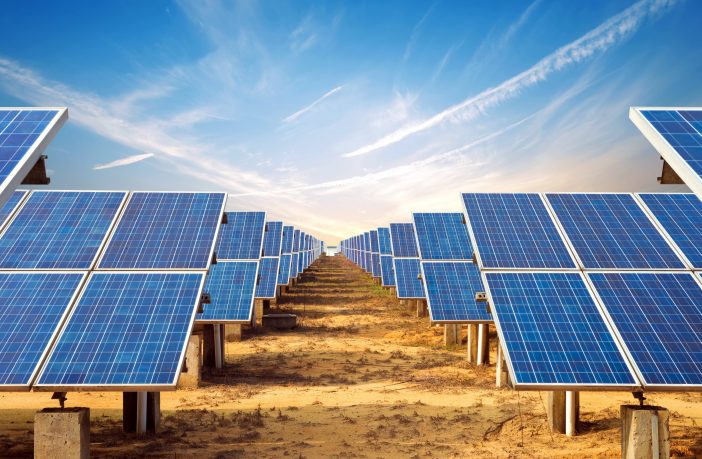- Waterloo Solar PV Plant , located 10kms outside of Vryburg, in the North West Province, has commenced its Commercial Operations, having achieved full compliance on 21 November 2020,becoming the latest utility scale solar PV project in South Africa.
This 100% South African-owned solar project in the North West, brings the total number of large-scale projects constructed in this Province to three, in just one year. Boasting 261 360 solar modules, harnessing the intense North West sun, this 75MW project is set to generate enough electricity to power 84 000 homes, via the national grid, each year.
Not only will the solar plant boost the renewable energy sector’s power production, it will also benefit the rural communities located within a 50km radius of the plant through impactful economic development programmes. During its 20-year operations period, the project will focus on empowering and strengthening the local communities of Vryburg, Kismet Park, Huhudi, Colridge and Dithakwaneng within the Naledi Local Municipal area.
COVID-19 humanitarian initiatives, in partnership with various local community NGO’s and the Department of Social Development were supported and funded to benefit a number of these communities, during the project’s construction period.
Additionally, hundreds of local high school learners received career development, which provided Grade 11 and Grade 12 learners with support tools for making improved subject choices linked to personal interests and strengths, in the senior phase of high school.
Speaking on behalf of the North West Department of Education, the Naledi Sub-District Manager Fhatuwani Makhado, commended the quality and necessity of the implemented programme that took place across four schools in the District.
The solar plant is situated on a 171-hectare site and is connected to Eskom’s Mookodi switching station, which feeds the generated power into the country’s national grid. The EPC Contractor, juwi Solar ZA Construction, together with local subcontractors, and ably supported by Eskom, RETEC and various government departments, completed the project in under two years. This despite the site closure due to the COVID-19 pandemic for a period of approximately 60 days, and the significant impacts of the restrictions imposed on travel and delivery of plant components.
At the peak of construction over 500 people, mostly from the surrounding local beneficiary communities, were directly employed. This is in addition to the employment created through the contracting out of various services.
During Waterloo Solar’s 20-year operations period, Socio-Economic Development projects will continue to focus on education, as well as youth development, health, food security and welfare. The programmes have been chosen following research and engagement to ensure that they are well informed and will strengthen the beneficiary communities.
Additionally, a percentage of the revenue generated each year will be committed to implementing Enterprise Development initiatives, to build resilience and accelerate the growth and success of entrepreneurial businesses, ultimately stimulating local economic growth and creating opportunities for the economic participation of previously disadvantaged groups. The focus is on small and micro enterprises, designed to enhance growth. To deliver on this objective, the establishment of a local resource centre, for use by local SMMEs and communities at large, will support this drive to aid development, whilst the provision of accredited skills training will be provided to start-up businesses.
Waterloo Solar is owned by African Infrastructure Investment Managers (AIIM, a member of Old Mutual Alternative Investments) through its IDEAS Fund, Reatile Solar Power (RF) (Pty) Ltd, Phakwe Solar (RF) (Pty) Ltd, AREP (African Rainbow Energy and Power) and Cicada Community Trust.
Author: Bryan Groenendaal















